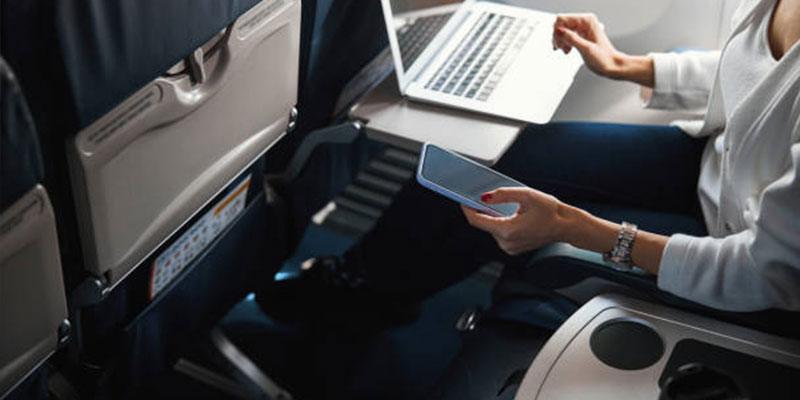Are li-ion batteries allowed on planes
Understanding Air Travel Regulations for Lithium-Ion Batteries
Lithium-ion batteries are integral to many of the devices we carry every day, from smartphones and laptops to cameras and medical devices. However, when it comes to air travel, their transportation is subject to strict regulations due to safety concerns associated with their potential to overheat and cause fires. This article explores the rules for carrying lithium-ion batteries on planes, explains the reasons behind these regulations, and highlights how Himax Electronics helps ensure these batteries are safe for travel.
FAA and IATA Guidelines on Lithium-Ion Batteries
The Federal Aviation Administration (FAA) in the United States and the International Air Transport Association (IATA) provide specific guidelines on how lithium-ion batteries should be carried on aircraft:
-
Carry-On vs. Checked Baggage:
-
Carry-On Luggage: Passengers are encouraged to carry lithium-ion batteries in their carry-on baggage. This allows any issues, such as a short circuit or smoke, to be addressed quickly by the crew.
-
Checked Baggage: With few exceptions (like medical devices), lithium-ion batteries should not be placed in checked baggage to prevent any risk where it cannot be immediately managed.
-
-
Battery Capacity Restrictions:
-
Watt-Hour Rating: The allowable size for lithium-ion batteries in carry-on luggage is generally restricted to batteries with a Watt-hour (Wh) rating of not more than 100 Wh. Batteries with a rating between 100 Wh and 160 Wh can be carried with airline approval, usually limited to two spare batteries per passenger.
-
Special Permissions: Batteries above 160 Wh are typically banned from being brought onto planes as carry-on or checked baggage unless they are installed in a device.
-
Safety Concerns with Lithium-Ion Batteries on Planes
The primary reason for these stringent regulations is the risk of thermal runaway, a process where excessive heat leads to a rapid increase in temperature and pressure in the battery. This can cause:
-
Fire: If a lithium-ion battery overheats, it can catch fire. In an enclosed space like an aircraft, this can be particularly dangerous.
-
Explosions: In extreme cases, the build-up of pressure and heat can lead to explosions, which might cause significant harm in the cabin or even jeopardize the aircraft’s safety.
Himax Electronics: Enhancing Safety in Air Travel
Himax Electronics is at the forefront of developing technologies that enhance the safety of lithium-ion batteries, particularly in scenarios like air travel:
-
Advanced Battery Management Systems (BMS):
-
Prevention of Thermal Runaway: Himax’s BMS actively monitors the battery’s temperature and voltage, automatically adjusting the charging rate and shutting down the battery if abnormal conditions are detected.
-
Cell Balancing: This feature ensures all the cells within a battery pack charge and discharge at an equal rate, which significantly reduces the risk of overheating.
-
-
Robust Battery Design:
-
Durable Materials: Himax uses state-of-the-art materials that enhance the structural integrity of the battery, making it less likely to sustain damage that could lead to a thermal event.
-
Venting Mechanisms: Should there be an increase in internal pressure, designed venting mechanisms safely release gases, preventing explosions.
-
Travel Tips for Carrying Lithium-Ion Batteries
When preparing for air travel, consider the following tips to ensure the safety and compliance of your lithium-ion batteries(LI-ION BATTERY):
-
Use Original Packaging: When carrying spare batteries, keep them in their original retail packaging to prevent short circuits.
-
Battery Cases: For loose batteries, use a battery case or place tape over the terminals and pack them in a separate plastic bag.
-
Check Airline Policies: Always check your airline’s specific policies regarding lithium-ion batteries as they can vary.
Himax Electronics: Leading Safety Innovations for Lithium-Ion Batteries in Air Travel
Himax Electronics is committed to pioneering technologies that enhance the safety of lithium-ion batteries, especially in high-risk environments like air travel. Their efforts are pivotal in ensuring that these batteries meet stringent safety standards and contribute to a safer flying experience.
Innovative Technologies by Himax Electronics
-
Enhanced Electrochemical Stability:
-
Advanced Electrolyte Formulations: Himax develops batteries with electrolyte compositions that are more resistant to thermal runaway and decomposition under stress. These advanced formulations help prevent the onset of hazardous conditions that could lead to fires or explosions.
-
-
Safety-Optimized Battery Components:
-
Fail-Safe Circuitry: Himax incorporates fail-safe circuitry within their battery packs. This technology is designed to detect faults and disconnect the battery automatically before the conditions for thermal runaway are met.
-
Ruggedized Construction: Batteries produced by Himax are built to withstand the rigors of travel, with robust casings that protect against physical impacts and pressure changes, common in air travel environments.
-
-
Research and Development:
-
Ongoing Innovation: Himax’s commitment to research and development ensures continuous improvement in battery safety technologies. By investing in cutting-edge research, Himax stays ahead of industry safety standards and regulatory requirements.
-
Collaboration with Aviation Authorities: By working closely with aviation experts and regulatory bodies, Himax helps shape the guidelines for battery safety in air travel, ensuring their products are not only compliant but also promote higher safety standards across the industry.
-
Travel Safely with Himax Electronics
Traveling with electronic devices powered by lithium-ion batteries can be worry-free when you have the right safety measures in place. Himax Electronics plays a critical role in this by ensuring their batteries are among the safest on the market, ideal for air travel where safety is paramount. By choosing Himax-powered devices, travelers can trust that their essential electronics are equipped with the latest in battery safety technology, minimizing risks and enhancing travel security.
Conclusion
As regulations around the transport of lithium-ion batteries on planes continue to evolve, Himax Electronics remains at the forefront of safety innovation, ensuring that their batteries meet the highest standards of safety and reliability. The integration of advanced protective technologies and rigorous testing regimes highlights Himax’s commitment to leading the industry in safety and performance. For those looking to travel with confidence, understanding these guidelines and leveraging Himax’s innovative battery solutions can make all the difference. Visit Himax Electronics online to discover more about their pioneering safety features and how they are making air travel safer for everyone.





